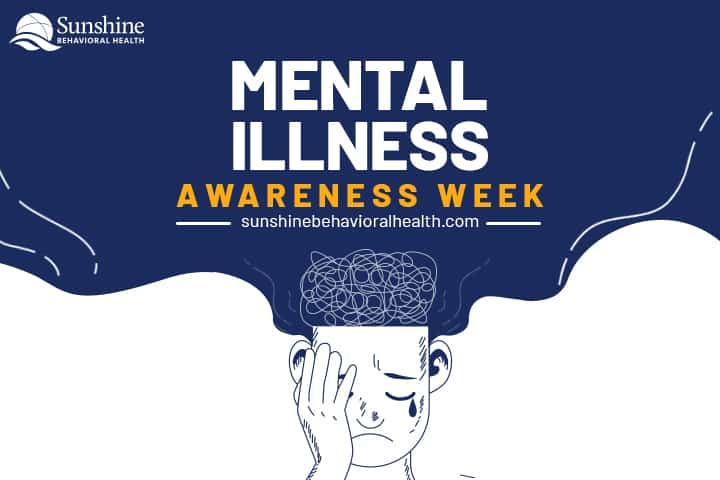
Mental Illness Awareness Week: Myths of Mental Illness
Like other awareness weeks and months, Mental Illness Awareness Week (October 3rd to 9th, 2021) provided information about a condition and offers resources for assistance.
What mental illness isn’t
Commemorations such as Mental Awareness Week can also help dispel myths. One of these myths explores whether there’s a connection between mental illness and violence. Because while violence and mental illness sometimes relate to each other, they’re not automatically connected.
“[I]ndividuals with mental illness, when appropriately treated, do not pose any increased risk of violence over the general population. Violence may be more of an issue in patients diagnosed with personality disorders and substance dependence,” wrote researchers in a 2008 article published in Psychiatry.
Barriers to treatment
When treated, then, mental illness isn’t more likely to cause violence. Unfortunately, people don’t always receive the treatment for mental illness they need. Mental illness is also often connected with other conditions, such as substance abuse.
Many factors could keep people from treatment:
- Denial or lack of information about the severity of their conditions.
- Financial concerns (such as inadequate health insurance or no health insurance coverage at all).
- Stigmas and discrimination that could make people afraid to admit they have mental health problems and seek treatment.
- Geographic distances from treatment providers and the lack of transportation to travel to and from those places.
Due to such barriers, some people don’t receive treatment. Others receive some treatment but stop before they fully recover.
No treatment often means no recovery. When people have both mental illnesses and addictions, the conditions worsen each other. Treating one is inadequate. If the other untreated condition flares up, it often threatens the recovery of the other.
Mental Illness Awareness Week illustrates what mental illness is and what it isn’t, what it does and what it doesn’t do. It points to the need for proper treatment and how people can benefit when they receive it.
Sources
ncbi.nlm.nih.gov – Violence and Mental Illness
sunshinebehavioralhealth.com – Mental Illness Awareness Week: Things Not to Say to a Person with a Mental Illness
A Message From Our CEO
Medical disclaimer:
Sunshine Behavioral Health strives to help people who are facing substance abuse, addiction, mental health disorders, or a combination of these conditions. It does this by providing compassionate care and evidence-based content that addresses health, treatment, and recovery.
Licensed medical professionals review material we publish on our site. The material is not a substitute for qualified medical diagnoses, treatment, or advice. It should not be used to replace the suggestions of your personal physician or other health care professionals.





